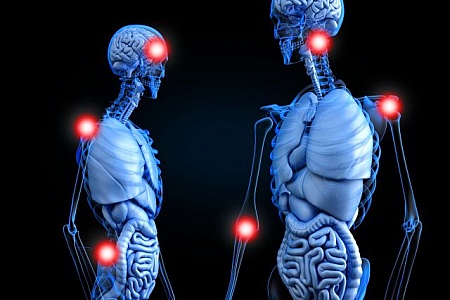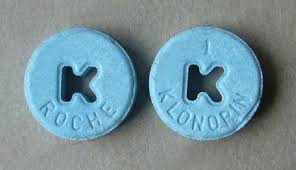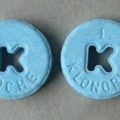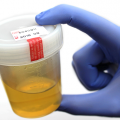How Long Does Klonopin Stay in Your System?
Klonopin pill is a brand of clonazepam, a prescription medication belonging to a class of drugs known as benzodiazepines. It is used to prevent and control certain types of seizure disorders such as epilepsy in adults and children. It is also used to treat anxiety and agoraphobia a type of panic disorder in adults. Either alone or combination with other drugs klonopin is used to treat conditions ranging from restless legs syndrome to parasomnia and other sleep disorders. Klonopin pills effect their action by modulating the function of the neurotransmitter gamma-Aminobutyric acid (GABA) in the brain, this in turn, leads to enhanced inhibition of neuronal firing slowing down brain activity and producing a calming effect. Peak blood concentrations of 6.5–13.5 ng/mL were usually reached within one to two hours following the administration of a single 2 mg oral dose of micronized klonopin in healthy adults. The drug has a 6-12-hour duration of action. See Klonopin Withdrawal Symptoms Cold Turkey
How long does Klonopin Stay in your System?
To fully understand how long klonopin stay in our body we must understand the concept of half-life in pharmacology.
What is the half life of Klonopin ?
The elimination half–life of any drug is a pharmacokinetic parameter that is defined as the time it takes for the concentration of the drug in the plasma or the total amount in the body to be reduced by 50%. In other words, after one half–life, the concentration of the drug in the body will behalf of the starting or initial dose. In the case of klonopin the half-life is how long it takes for 50% of a single dose of klonopin to leave the body. It is important to note that with each additional half-life, proportionally less of the drug is eliminated. However, the time required for the drug to reach half of the original concentration remains constant. The half-life of klonopin is between 30 – 50 hours or 2 days.
Example of How Klonopin is Eliminated from the Body
Taking a 1mg dose of klonopin with a half-life of 50 hours as an example, the following holds true:
- 50 hours after klonopin administration, 0.5 mg of klonopin remains in the body.
- 100 hours after klonopin administration, 0.25 mg of klonopin remains in the body.
- 150 hours after klonopin administration, 0.125 mg of klonopin drug remains in the body.
- 200 hours after klonopin administration, 0.0625 mg of klonopin remains in the body.
- 250 hours after klonopin administration, 0.03125 mg of klonopin remains in the body.
250 hours or approximately 10 days after the administration of 1 mg of klonopin around, 0.03125 mg of the initial drug still remains in the body. In general, it takes approximately 6 to 14 days for klonopin to be completely eliminated from the body, this is because of the long half-life of klonopin which ranges is between 30 – 50 hours or 2 days depending on several factors
‘Factors that Influence Klonopin Removal From the body
There are two main factors that affect the elimination half-life of any drug including klonopin these are clearance and volume of distribution. The clearance of the drug (CL) refers to the rate at which the body eliminates the drug from the body. The volume of distribution (Vd) refers to the distribution of the drug around the body. The two most important sites for drug elimination are kidneys and liver. Any condition that negatively affects the optimal function of this two vital organs will also impact on the rate of the removal of klonopin from the body. See: How Long Does Methadone Stay In Your Urine
Public Health Nigeria an Interdisciplinary public health movement focused on health education, advancing fair public health policies, promoting fitness, healthy diets, responsible behavior, community health and general well-being.






